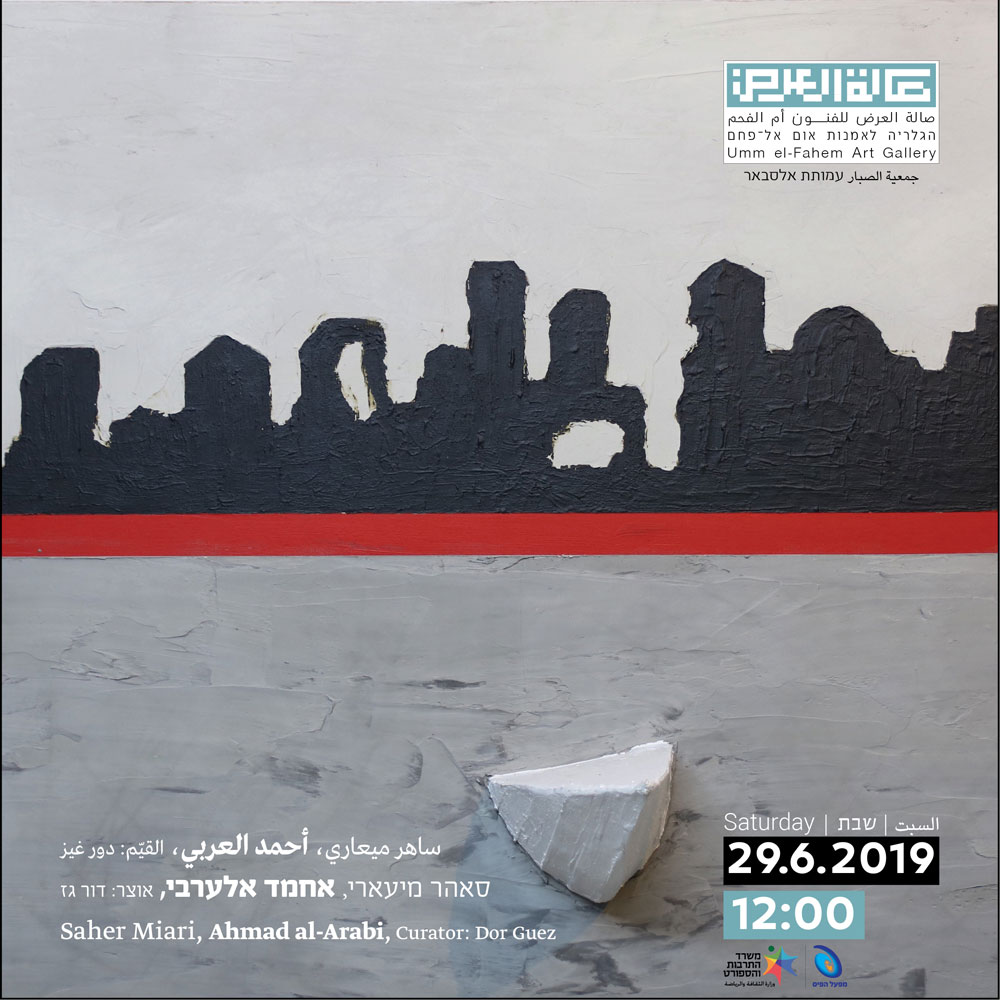
January 16, 2020; Haaretz
The director and curator of the Hecht Museum, an art and archeology museum associated with Haifa University in Israel, decided to call off a scheduled gallery talk by one of the school’s master’s-degree students, Saher Miari. The decision was prompted by fears that support from a key funder, the Hecht Foundation, would be put at risk.
Miari’s piece appears innocuous. Entitled “Construction in Progress,” the work, constructed from concrete, iron, white cloth, and burnt motor oil offers no explicit political statement or social commentary. It’s the artist’s background as a Palestinian Israeli citizen that the museum’s leadership thought might cross a funder-drawn line.
Let’s take a moment to repeat that the focus of the museum is art and archeology, and that the point of anticipated contention is the ethnicity of the presenter.
According to Haaretz, Shunit Netter-Marmelstein, the Hecht Museum’s director and curator, was clear in her letter to the student’s professor and the university informing them of her decision to bar the artist’s showing: “The decision stems from our commitment to take the views and the wishes of the Hecht Foundation into consideration. Based on experience, the foundation would not permit a gallery talk to be held at the museum for a Palestinian artist.”
Naturally, others at the university took offense that the potential umbrage from a donor took precedence over the values and morals of the organization. Professor Gur Alroey, in a letter to the university’s president, rector, and director general, wrote, “Miari is a citizen of the State of Israel. It is not difficult to imagine the storm that would have erupted if the curator of a museum in Europe had written a similar email to a department head and replaced the word ‘Palestinian’ with the word ‘Jewish.’ I am ashamed and embarrassed as a faculty dean, as a faculty member, and as a citizen.”
Standing by one’s principles is not easy. Twenty years ago, a controversial art show at the Brooklyn Museum of Art raised the hackles of Rudy Giuliani, then New York City’s mayor. As he explained in comments reported by the Washington Post: “The idea, in the name of art, of having a city-subsidized building have so-called works of art in which people are throwing elephant dung at a picture of the Virgin Mary is sick. If someone wants to do that privately and pay for it privately, that’s what the First Amendment is all about…but to have the government subsidize something like that is outrageous.” A quarter of the museum’s budget was at risk, and in the end, museum leadership was able to hold their ground only after an outpouring of public support.
Sign up for our free newsletters
Subscribe to NPQ's newsletters to have our top stories delivered directly to your inbox.
By signing up, you agree to our privacy policy and terms of use, and to receive messages from NPQ and our partners.
That’s in the face of a funder who is responsive to public pressure. It becomes even harder when funders are private. As the late mega-donor David Koch candidly put into words in an interview, funders think they ought to use their funding power to exert control. “If we’re going to give a lot of money,” Koch said, “we’ll make darn sure they spend it in a way that goes along with our intent. And if they make a wrong turn and start doing things we don’t agree with, we withdraw funding.”
Consider Harvard, where, as NPQ reported in 2016, a million-dollar donor sought to redirect its gift once its law firm logo wound up on a student forum in support of Palestinian self-advocacy. The potential loss of even a smaller donor’s support was great enough for Harvard’s leadership to make a change that, as Katherine Franke, a law professor at Columbia Law School, described, tampered with the learning culture of the school.
“This kind of influence will have a chilling effect, to be sure, on the kinds of things students feel comfortable saying,” she said, “We should celebrate robust discussions about the most difficult issues of the day, including viewpoints that might make us uncomfortable.”
The University of Haifa issued a statement saying it would hold a “full, thorough investigation.”
The university views the matter with gravity. The decision to prevent an Israeli artist from participating at an event to which he had been invited due to a certain component of his identity is an inappropriate decision that has no place at the university. The decision was taken without the approval of the administration and without informing it.
Art informs and is informed by the realities of our lives—the ways we see and experience the world and take control of the lenses through which we view it. That the mere fear of a donor reaction resulted in self-censorship in a field where art and history connect is not only cowardice but makes an anachronistic joke of organizational purpose.—Martin Levine













